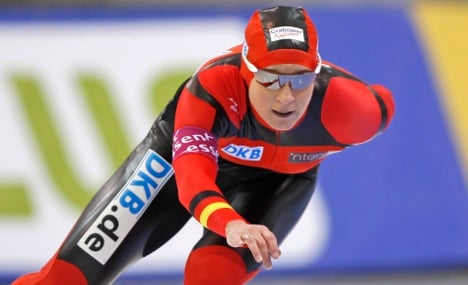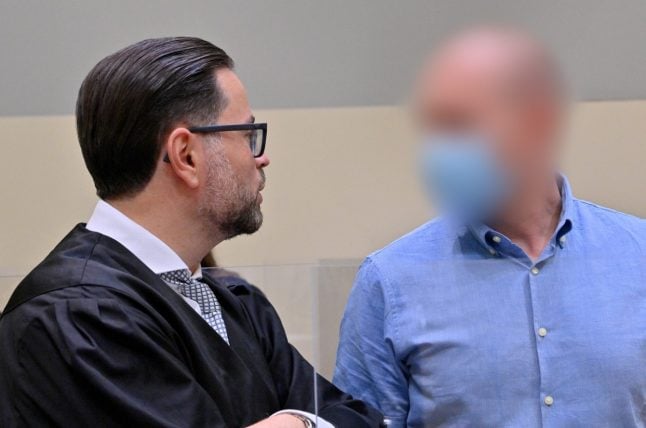Under International Olympic Committee (IOC) rules, an athlete who has served a ban of longer than six months for doping is automatically banned from the next Winter Games.
The Committee has confirmed that this rule, known as the Osaka rule, applies in Pechstein’s case.
But Pechstein said Tuesday she does not accept the extended suspension.
“My comeback is not limited to this season, and they want to deprive me of the 2014 Games. But I am going to fight to win a tenth Olympic medal at the next Games,” vowed Pechstein, Germany’s most-decorated Winter athlete with five titles as well as two silvers and a pair of bronze medals.
Pechstein recently completed a two-year ban after a hematocritic blood test, which measures the ratio of white blood cells in a person’s blood stream, showed abnormal readings.
She continues to vehemently deny any wrongdoing.
Pechstein says she has enlisted the support of hematologists to send the IOC a report which apparently shows that she suffers from a congenital blood abnormality that could have produced false readings.
Pechstein added she has asked the International Skating Union to be exempted from renewed suspension if her irregular hematocritic values are indeed found to be the result of a congenital abnormality, or, failing that, she would bring her case to the Court of Arbitration for Sport.
Pechstein, 38, was the first top level athlete to be banned on the basis of anomalies in her biological passport, a blood-testing method introduced to quell doping in sports.
She said the whole affair has been “a nightmare.”
This weekend, Pechstein will skate competitively for the first time since her suspension in the central German town of Erfurt, as she bids to qualify for the world championships in the town of Inzell in the German Alps.
AFP/The Local/adn



 Please whitelist us to continue reading.
Please whitelist us to continue reading.
Member comments